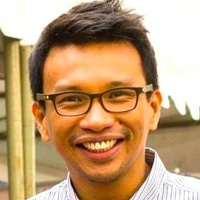
Nobody likes graded recitations. You prepare hard. But you pray hard anyway that you won't be called. And still you get called and asked the most difficult question. Then everything you thought you already knew fades out.
That is before you yourself fade out.
I dreaded graded recitations too when I was a student. To me they caused unnecessary stress. It would have been nicer if discussions were spontaneous. But somehow I understood why some teachers liked giving graded recitations. It's a trick of the trade to compel students to read.
But there's so much more to it.
Without students realizing it, classroom discussions – graded or otherwise – train them to be good citizens. The classroom, after all, is a space where ideas are presented and then challenged among its participants. In this environment, ideas are made robust by active participation, not fear.
This is how education, if done well, could shape the future of citizenship. For the philosopher John Dewey, education cannot be a mechanical space where skills are acquired only to make them functional laborers. Instead, the curriculum must assume a social responsibility for students to tackle "problems of living together".
Democracy and critical thinking
Democracy also assumes a social responsibility. It is not just about having elections and a stable government. Democracy's endurance lies in people's willingness to participate to achieve collective wisdom to address troubles we are faced with.
It is thus a way of life. The only problem is that participation is contentious.
And yet any other alternative is less desirable.
Think about it: a government that demands its citizens to only pay their taxes and not question its decisions is an insecure government. Politicians who tell critics to shut up are likely unwilling to expose their ignorance. The same goes for folks on social media who resort to ad hominem when they don't like what they see.
They all forget that democracy demands collective participation. Collective participation, if it were to take its social responsibility seriously, demands critical thinking. That is hard.
The issues we have these days are endless: Martial Law, ISIS, federalism, China, the peace process, and the war on drugs. We have poverty, unemployment, and homelessness to boot. To tackle all these issues is far beyond the ability of one man, party, or regime.
And yet for some reason, dissent has become obnoxious these days. In fact, tolerance of dissent has become so low that those who simply ask questions are readily dismissed as enemies of the state: Human rights activists are meddlesome. Journalists are spreading fake news. Academics are useless armchair analysts.
Participation that exacts only uniformity and subservience endangers the very society it wishes to serve. It might appear efficient and decisive. But not for long. The death of critical thinking engenders an ignorant society.
Way forward
Dissent is such a loaded word. That partly explains why supporters of this administration find critics repulsive. They are of the opinion that critics get in the way of progress.
Their conviction is that "hindi umaasenso ang bayan dahil maraming kontrabida".
That might be somewhat true because dissenters slow things down.
But many of us do not necessarily want to slow things down. We ask questions because we are simply being good citizens. By asking tough questions, we encourage critical thinking among our leaders. It is in this manner that democracy, as a way of life, can hold citizens accountable to each other.
Is martial law the only option? Is free tuition fee the wisest intervention? How reliable is federalism? Is the war on drugs truly effective?
At the same time, we can direct our questions at each other: How objective are our journalists? Why are trolls so pervasive and who finances them? What interests are being protected by academics? And how credible are human rights activists?
These are all tough questions and there is no single answer. Thankfully, ours is a democratic society. We must take advantage of our liberties to shape the quality of our conversations and decisions.
We must also use our liberties to arrest those who wish to take them away from us. It is not only through martial law that our liberties are stolen from us. Without us realizing it, this atmosphere that limits critical thinking takes away from us our greatest facility as a people: our intellect.
Critical thinking is needed more than ever in our country. But may it not be to demonstrate erudition or eloquence. We need it because in a democratic society such as ours, genuine progress rests upon mutual accountability.
Graded recitations are scary. But the decline of critical thinking is far scarier. – Rappler.com
Jayeel Serrano Cornelio, PhD, is a visiting professor at the Department of Sociology at Mindanao State University - Iligan Institute of Technology. He is the National Academy of Science and Technology's 2017 Outstanding Young Scientist in the field of sociology. Follow him on Twitter @jayeel_cornelio.